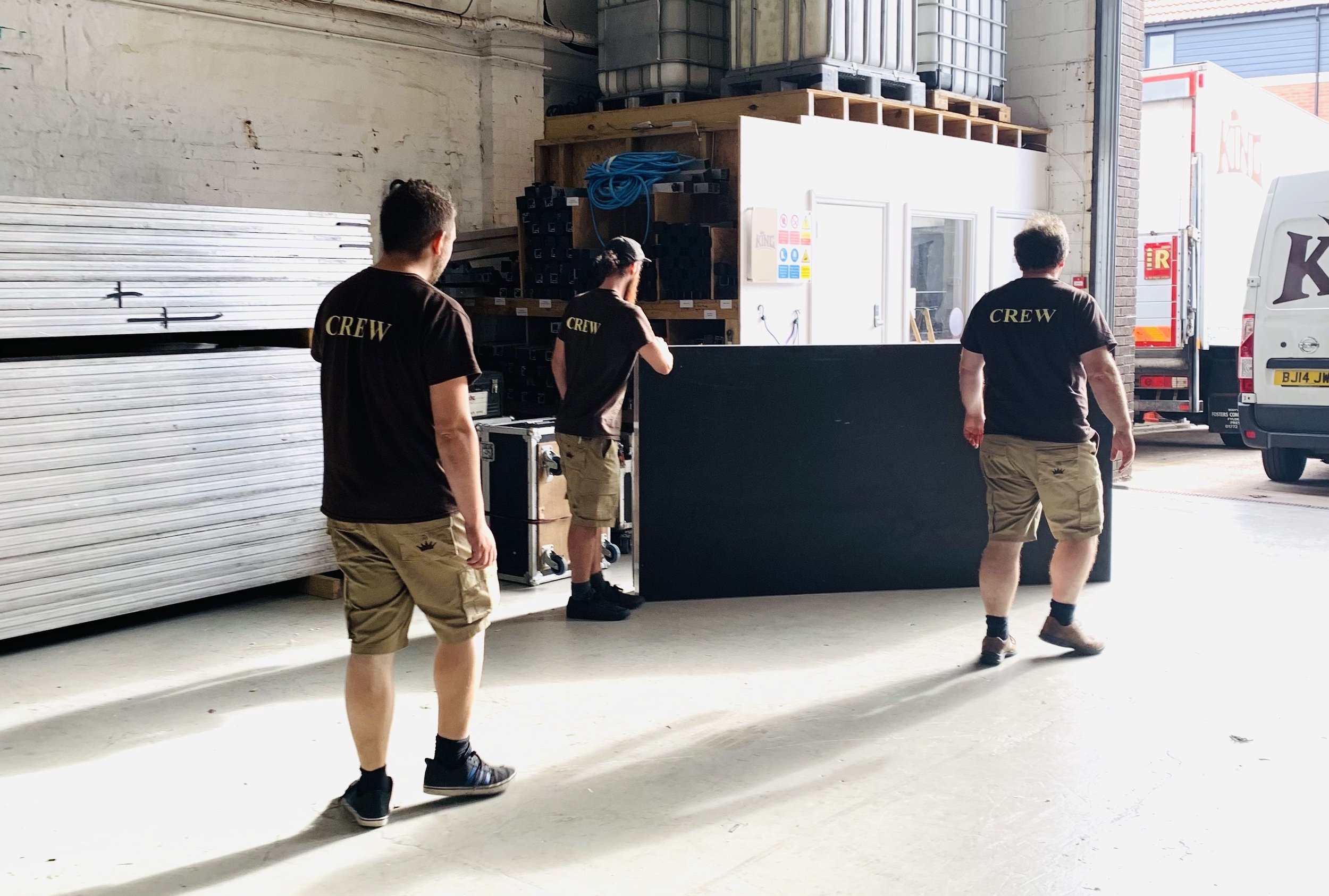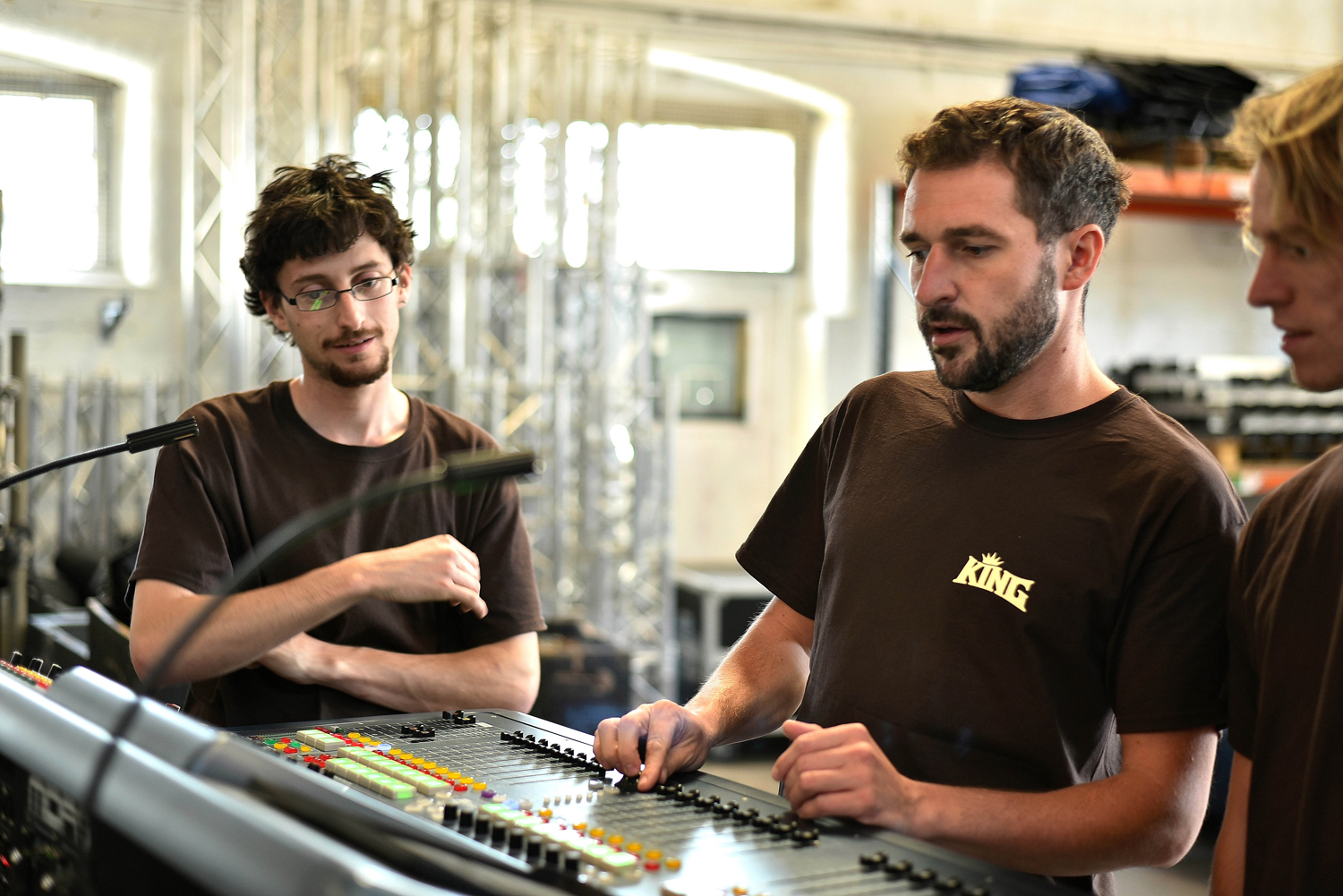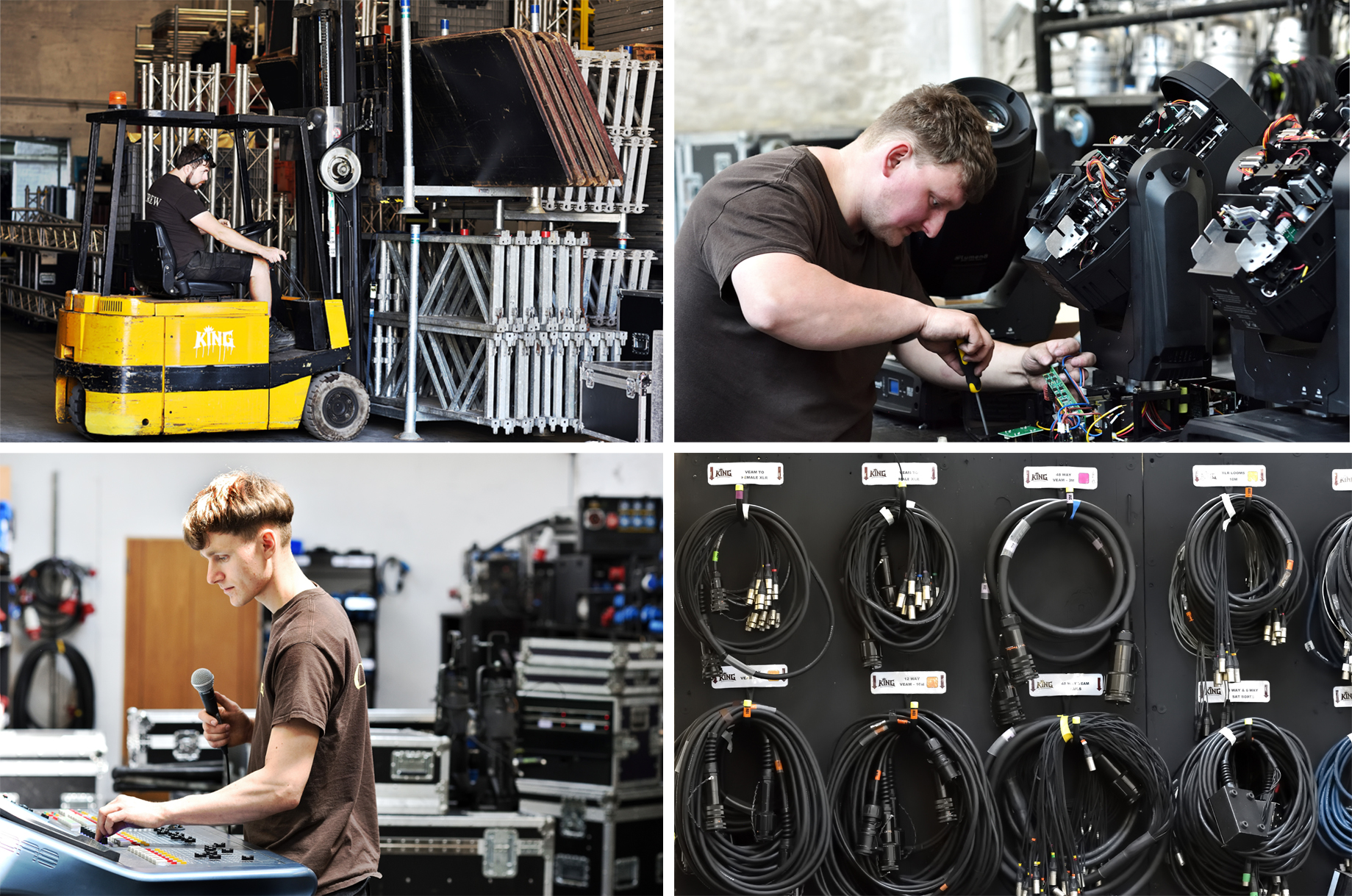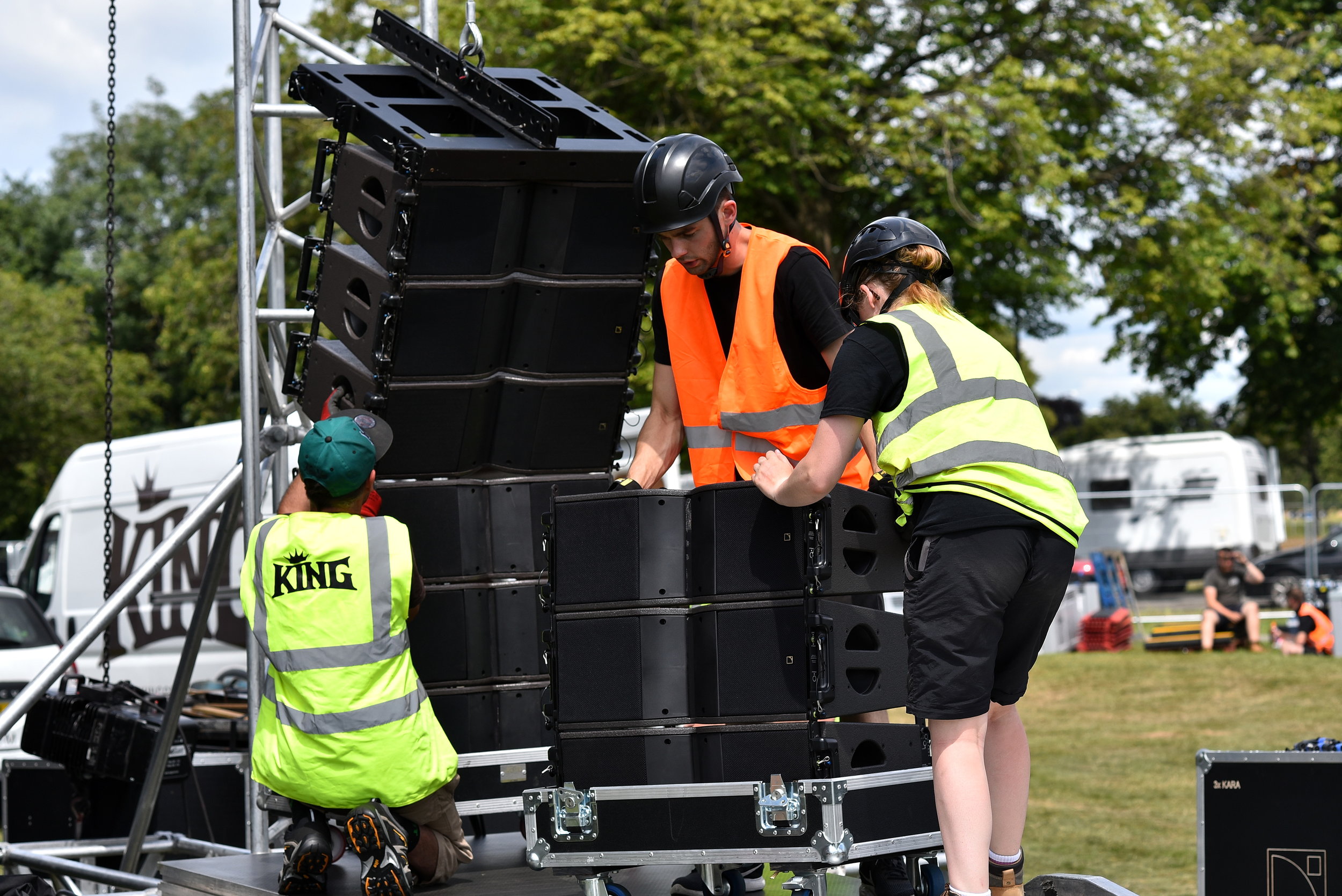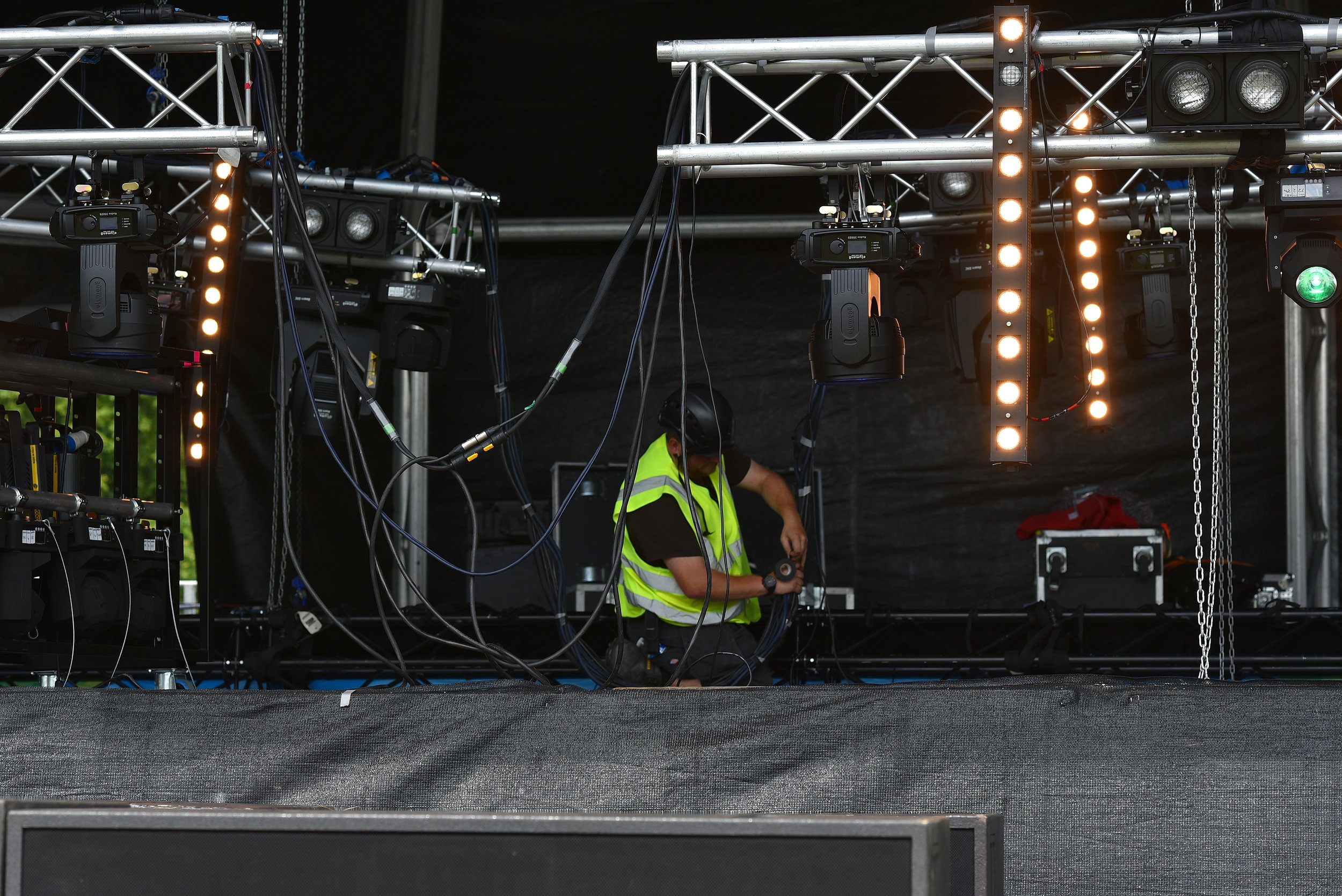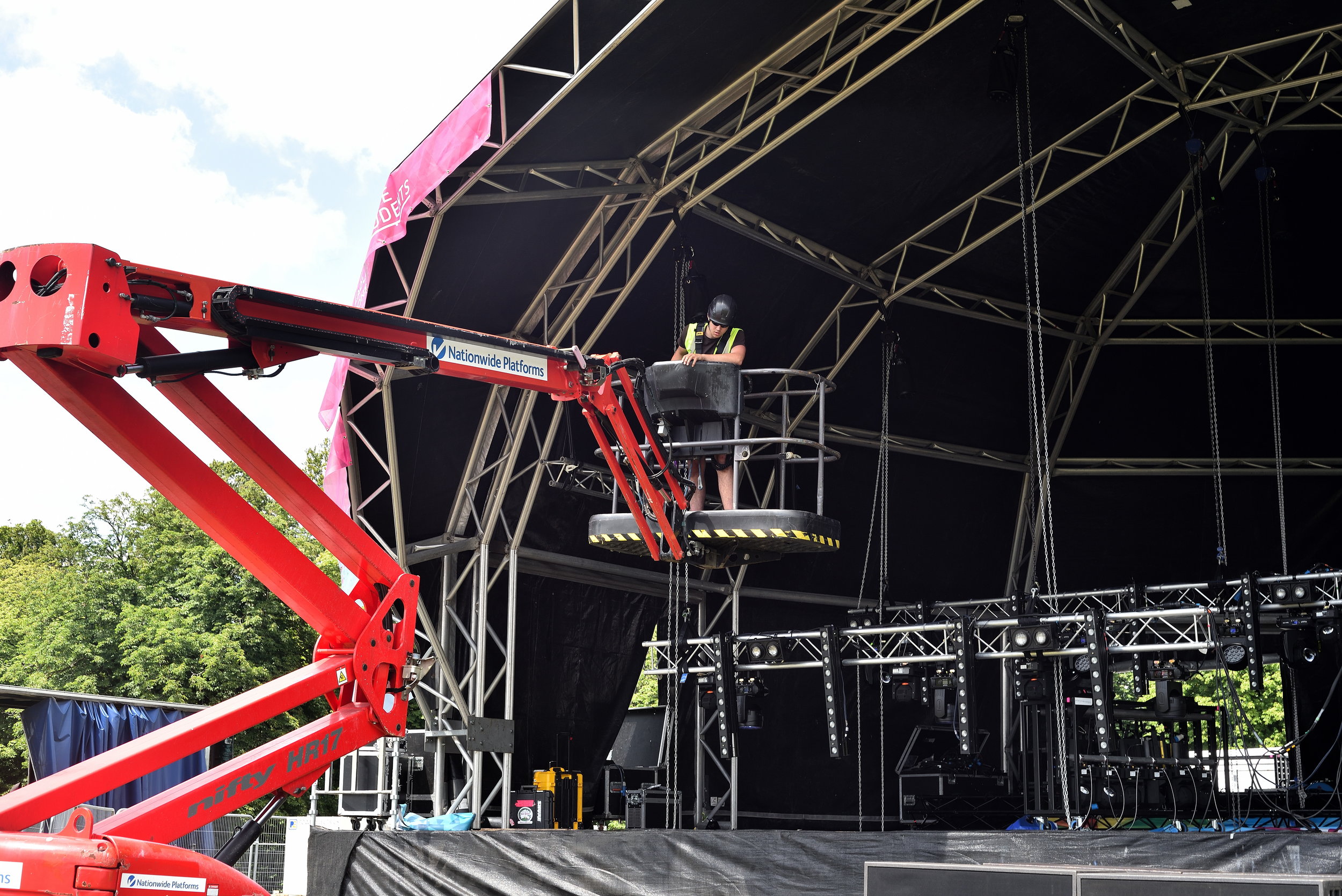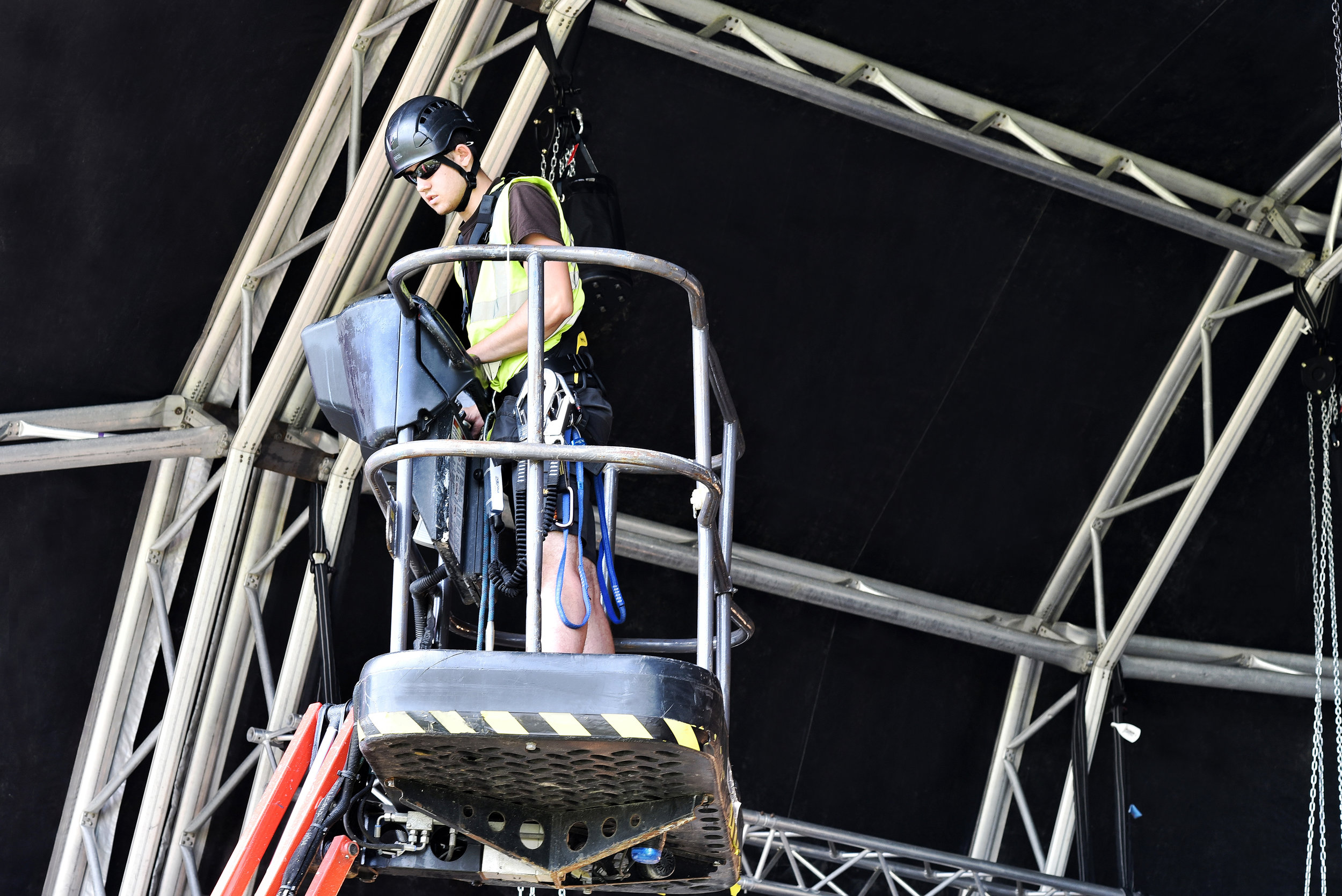THE KIND MINDSET
People are the key to bringing company culture to life. Our culture is the one that encourages and supports professional development for everyone and makes the whole team stronger.
WHO WE ARE LOOKING FOR
We are looking for smart, talented and passionate professionals who always learn, enjoy working in teams and share our values.
Sound and lighting engineers, production and warehouse managers, rigging and staging specialists, our most valuable resource is our people – with diversity of backgrounds, ideas and life experiences, together we’re building a business with large horizons and strong ethics.
Entertainment industry may sound a glamorous job but it’s far, far tougher than most people think. Fantastic shows yes, but also early starts, unsocial hours, long shifts, tons of logistics and travel. But it also can be very rewarding: you are able to see the results of your work almost immediately and grow out of your comfort zone every day!
OUR CULTURE AND VALUES
They say great culture is one that trickles into every crevice of the business and that’s certainly true.
Ultimately it tells you what to do when the boss is not in the room (which is, of course, most of the time!) Big or small, our decisions impact the company and our valued customers, so at King we always ask: are we doing things the ‘King way’? Do our standards and ethos allow it?
For us it’s simple: it is ‘king way’ or no way.
The values and philosophy below will tell you all about our ways.
-
is extremely important. We want you to be proactive and take initiative often. Come forward with ideas, offer solutions, we love that! Some might not work out work in long run but it is your willingness to go the extra mile and embrace that challenge that matters. Sometimes your job may require extra work and test your tenacity but we make sure to always treat you fairly (including financial rewards and accolades).
What we say is that everyone in their role can contribute daily on how things can be improved in the company (that’s in fact what our top performers do!) If however you are up for more standard, ‘9 to 6 pm’ type of job (nothing wrong with it, by the way), we probably won’t make a good match.
-
We are a compact team and so it is important we all can be as hands-on as possible in our daily work. There is no small or big jobs, it’s shared responsibility to ensure our warehouse, offices and other spaces are clean, tidy and run smoothly everyday.
If you see something goes wrong, even a small thing like heating being left on or clutter in the kitchen space, don’t pass by, address it. Treat it like home (would you ignore something being not ok at your place?) If the problem is big and you cannot fix it yourself, ask a colleague.
Don’t assume someone else will do it. Don’t say, ‘that’s not my job’ because it’s actually EVERYONE’s job. For example, all of our staff can pick up rubbish, change the toilet paper roll and do the dishes, if it needs to be done. They know that they are not being paid for this, and they know that these tasks could be completed by someone who is being paid less than them. But they also know that the organisation is more successful if everyone pitches in.
If people tackle the task in front of them then little ‘niggly’ things don’t become big things. Beside, there’s nothing more frustrating for a manager than asking a team member to do something and being greeted by a copy of a job description as an excuse not to take on the task. If you want your boss to see you as promotion ready, you have to do the next job in addition to your own job. Reframe it as an opportunity for leadership development!
-
If the issue is big and systemic, bring it up and engage the whole team into conversation. We hold regular team meetings and we encourage everyone to speak up if they feel the things fell below standards at any level. Be respectful but candid and find solutions together. At King Sound Reinforcement we promote a culture of openness where no one is above constructive feedback. Often, a quick and candid chat is the best way address issues early so the whole team could move on.
-
Good gigs come along with challenging ones (they all pay your rent though!) More importantly, they earn you experience. So the right attitude is a must. Be positive and willing to work hard. When you start, you might begin with least exciting jobs first. Don’t lose momentum just because you believe it is below your qualifications. Keen, reliable attitude paired with strong work ethics is always impressive and quickly earns you reputation.
-
HR will help to understand your job in detail and onboarding / probation period will allow you settle in your role fast but ultimately it is your ‘gig’ (to show us you are serious about your career). We like self-starter attitude and motivation – it is inspiring and boosts the team’s morale too.
That’s why we try to avoid micro management as we believe to become a valued member of the team, one needs to have a good amount of autonomy to make their own decisions. Plus, everyone in the team is on their own journey, busy doing stuff so you need to be able to take plunge and start making progress straight away.
-
Being in a leadership role pushes a person to be a good role model, learn to make decisions and respond situations maturely. It also requires you to be fair, reliable, and to have integrity.
One of the most important qualities is to have commitment. If you expect your team to work and achieve success, you will have to inspire and lead by example. There is no greater incentive than seeing the person in charge working right alongside everyone else, where the work is being done on every level.
By proving your commitment to the overall goals and to your own role, you will not only earn the respect and admiration of your team but you will also encourage the same hardworking energy among your staff. At the same time if something goes wrong, it is you who is in driving seat and so you need to learn how to own your mistakes.
Leadership thus comes with many perks and rewards but great challenges too.
The next two values are deeply rooted in this one.
-
It sounds like ‘‘It is never someone else’s fault (even when it is).’’
The are two reasons for that:
1) Backing your team.
Have you ever worked with, or for, someone who ‘threw you under the bus’ the minute things got real? Nobody wants to work with that guy.
When your team know that you’ve got their backs, especially when they make a mistake, they’re more likely to innovate, take risks, communicate more effectively with you and each other, and generally be more successful.
But doing this is hard – chances you likely to be annoyed, or even angry that they let you down – why not to let people know that they messed up? Why should you take the blame when you didn’t do it?
But that’s the point. To demonstrate you are a true leader, you take ownership for it. Not by lying – you don’t have to say that you personally lost the client or damaged the equipment – but it happened on your watch, and therefore there will be numerous things you could have done to avert catastrophe: own those things.
People will line-up to be on your team. With all that said, it doesn’t mean you should not discuss the problem with the member of team who failed to deliver (you course you should!) but it is your responsibility that comes first.
2) Demonstrating accountability.
Closely related, but subtly different: nobody wants to employ the guy who blames everybody else and never takes responsibility for mistakes. Don’t be that guy either. It’s easy to slip into the trap of thinking that by pointing out another’s mistakes you somehow look better by comparison. But it doesn’t work that way. At best, it indicates that your leadership is ineffective. At worst, it shows that you lack character.
And this doesn’t only apply to your immediate superiors either. It also applies to your clients. Nobody wants to know that the company they’re working with or buying something from is so dysfunctional that there’s no internal loyalty bettween departments or teams. You can build an exceptionally loyal client by taking ownership, and fixing the mistake – but seldom is this the case if you blame someone else.
-
Stay calm and professional in any situation. You can be a talented engineer or manager but if you fail to establish relationships with the clients, struggle to work in the team, don’t comply with our internal policies and rules, sadly but we will have to say goodbye to you.
Professionalism is complex concept. More than being polite and able to listen to feedback, it covers broader spectrum of elements.
Below you will find some practical language and attitude suggestions we encourage our employees to use:
1) Be friendly. Use first names as much as possible, it gives a personal touch and helps avoiding too formal tone (especially when talking to clients);
2) Use appropriate tone of voice. One word can mean a different thing when said in different tone of voice. Don’t discourage or demotivate others;
3) Use simple words. Effective communication is when everyone can be easily understood, vagueness will just lead to confusion and mistakes;
4) Try and be humorous. It’s a highly effective way of dousing tension to help information to be retained and understood. But you don’t have to overdo it with jokes (remember you are not a stand-up comedian);
4) Don’t swear. It may sound obvious but it undermines your professional image seriously. Yes, sometimes situation can be harsh but make an effort to avoid strong language or make dubious comments;
5) Don’t air confidential issues in public. There is a grievance procedure for it;
6) Create receptive atmosphere. Try to encourage questions and support;
7) Encourage feedback. Always give room for feedback so that you can measure the effectiveness of your style of communication;
8) Listen and acknowledge. Communication is always a two-way street;
9) Be appreciative. Always thank listeners for their time. It will cost you nothing and it’s a simple courtesy;
10) Display confidence and seriousness. You represent King Sound Reinforcement, the company’s brand and you are a professional in your industry.




